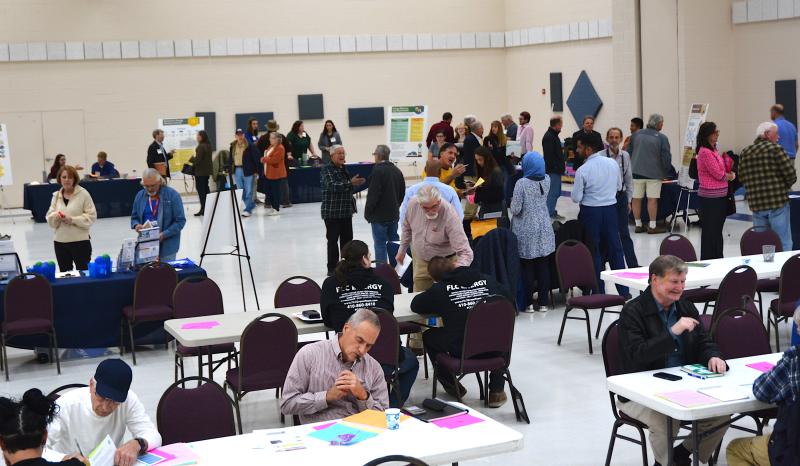After 15 years, state looking to update its energy plan
The Governor’s Energy Advisory Council has been working since July on drafting a new energy plan.
Since the plan was last updated about 15 years ago, there’s been significant change in the way people use energy in Delaware.
In advance of a new draft, the council, with the help of Delaware Department of Natural Resources and Environmental Control staff, hosted public input sessions in each county – Nov. 1 in Dover; Nov. 6 in New Castle; Nov. 15 in Georgetown.
Thomas Noyes, DNREC Division of Climate, Coastal and Energy’s principal planner for energy policy, oversees the staff it took to make the sessions happen and was in attendance for all three.
He said a lot has happened in the last 15 years, pointing to the installation of 200 megawatts of solar, the building of microgrids, the growing popularity of electric vehicles and the recently announced plan to put a hydrogen hub in Delaware.
Electric vehicles were hardly even a thing 15 years ago, he said.
Noyes said he was pleased with the turnout in Georgetown. More people attended the Sussex event than the one in Dover, he said, but fewere than in New Castle.
In Georgetown, he said, popular topics were offshore wind, renewable energy programs and modernization of the local electrical grid.
The Governor's Energy Advisory Council was created in 2004. In 2022, the group expanded to 25 members, with representatives from business, environmental interest and energy sector experts, environmental equity advocates, local elected officials and the general public.
This summer, the council was tasked with updating the plan; the members were split into four working groups – energy equity and environmental justice, energy efficiency and electrification, renewable energy and clean technologies, and grid modernization.
Noyes said those working groups have been meeting almost weekly, for hours at a time. It’s highly technical stuff, but it’s also interesting, he said.
In developing its recommendations, the council will build on the policy work of two previous planning efforts – the 2009 Delaware Energy Plan and the 2021 Climate Action Plan.
The new Delaware Energy Plan has to work with the Climate Action Plan because there are goals in the action plan that can only be met if the energy plan reflects those goals, said Noyes.
Public comment on this portion of the process ended Nov. 17.
Looking forward, DNREC staff will compile the comments made at the three sessions and do two things with them: share comments with the working groups for consideration and put all comments online for the public to evaluate.
According to a timeline created by DNREC, the advisory council is expected to make its recommendation to DNREC in January 2024. After receiving those recommendations, DNREC will create a draft plan and host a second round of public hearings, which are expected to take place in the spring. The updated energy plan is expected to be released by July.
When complete, the plan won’t have the force of law, but it will include recommendations on legislative actions that could be taken, policies that might need to be changed, programs that should be renewed or created, and ways to coordinate with key stakeholders.






















































